By an Eyeopener staff member
A panel discussion along with a call to action titled “Let Gaza Live” was held on Thursday by Toronto Metropolitan University (TMU) student and faculty groups where legal and medical panellists offered their perspectives on Gaza’s current state.
The panel was held in the Sears Atrium and hosted by the Toronto Metropolitan Faculty Association (TFA), TMU chapters of the Jewish Faculty Network (JFN), the Faculty for Palestine Canada (F4P) and Students for Justice in Palestine (SJP).
Professionals from various fields including education, medical and legal fields discussed the current Palestinian experience in Gaza while highlighting the need for an increase in advocacy and support for civilians.
Ahmed Abu Shaban, an associate professor in agriculture at Al-Azhar University and visiting professor in the Faculty of Environmental and Urban Change at York University, was the first panellist introduced. He spoke about the importance of education for Palestinians in Gaza.
“Education for Palestinians is their identity, so [the State of Israel was] attacking academic education institutions simply because they feel that the academic institutions reflect the Palestinian identity,” said Abu Shaban.
He said education is vital because it teaches the younger generation about their rights and their land. He added this was not the first time academic institutions have been targeted. During his 32 years at the university, Abu Shaban said Al-Azhar University’s campus has been “destroyed three times before.”
All 12 universities in the Gaza Strip have been destroyed since the beginning of the war according to the F4P. Despite this, Abu Shaban said Palestinian students are still trying to get an education even though the war has placed an enormous strain on resources for students. Faculty members as well as thousands of students have been killed according to the F4P.
“They think that they destroyed our buildings, our infrastructure. They killed some of our colleagues, thousands of our students. But we are still there. Institutions are still here,” said Abu Shaban.
Throughout the panel, Abu Shaban spoke to the audience about the effects that this war has had on academic institutions, his job as well as his students since Oct. 7. The university and individual professors were unsure if they should continue to provide education after the events of Oct. 7, 2023, but decided to start classes again virtually in June 2024.
After they launched online courses, Abu Shaban said they got 10,000 students signed up, which exceeded his expectations. He then shared different stories about a few of his students—some of which have been killed—emphasizing their resilience.
“The good news about it is the Palestinians always stand as a symbol for resilience for the international community, every time they destroy our building, we rebuild again and restart again,” said Abu Shaban.
Not only has this war affected education but it has also affected all other sectors, he added.
“They are [destroying Palestine] in all other sectors because they are destroying education, health infrastructure, environment, residences, everything, even public services,” said Abu Shaban.
Dr. Amgad Sharif, one of the panellists, discussed how scarce medical assistance is in Gaza. He has led and participated in many medical mission trips to Gaza and has operated on many Palestinians during the war. Similarly to the other panellists, Dr. Sharif reiterated the severity of destruction in different sectors, specifically medicine.
“Being a physician and surgeon, we’re trained to take care of people. We are trained to take care of humanity and I can tell you that, unfortunately, the healthcare system has totally collapsed,” he said.
Having such a limited and sometimes non-existent supply of medical equipment is a daily reality for Palestinians. “It’s a privilege if there is a tray for any instrument, or [if] there’s a bed that you can put the patient in,” said Dr. Sharif.
Sharif says medical students as well as practicing doctors are also affected by their hospitals being destroyed.
Jillian Rogin, a panellist and associate law professor at the University of Windsor is an active member of the Jewish Faculty Network, Independent Jewish Voices, Jewish Voice for Peace and F4P. She discussed the international law surrounding the war and the legal aspect of advocacy for Palestine in Canada.
She highlighted the lack of freedom of speech in Canada for the solidarity with the Palestine movement and called for the continuation of advocacy for Gaza and a stop to “the repression of freedom of speech and freedom of assembly.”
“Everything is so dire and so urgent, we need to come together and reflect, analyze and strategize. We need to continue to fight for these spaces to counter the suppression of solidarity with Palestine,” said Rogin.
Diana Buttu, a Canadian Palestinian lawyer and a Palestinian citizen living in Israel, also touched on the multidimensional damage the war has caused for every sector and the infrastructure of the entire Gaza Strip. She joined the panel virtually as she was out of the country.
“You can just imagine the damage that’s been done to the environment, to the food supply, to the water supply, with all of these bombs that are being dropped,” said Buttu
She spoke about her personal experience of losing friends and watching them navigate the war.
“Each and every one of my friends has faced one of three fates. They’re either outside of Gaza, they’re displaced inside Gaza and homeless or they have been killed,” said Buttu. “It’s been a year of explaining over and over and over again that Palestinians deserve to live, that they deserve to be free and that nothing, absolutely nothing, justifies genocide.”
All four panellists wrapped up the event by briefly answering questions from the audience.


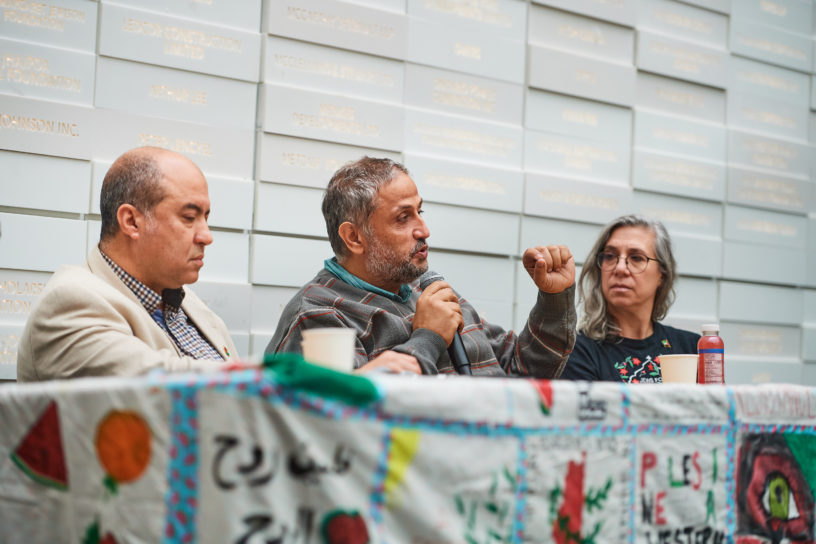
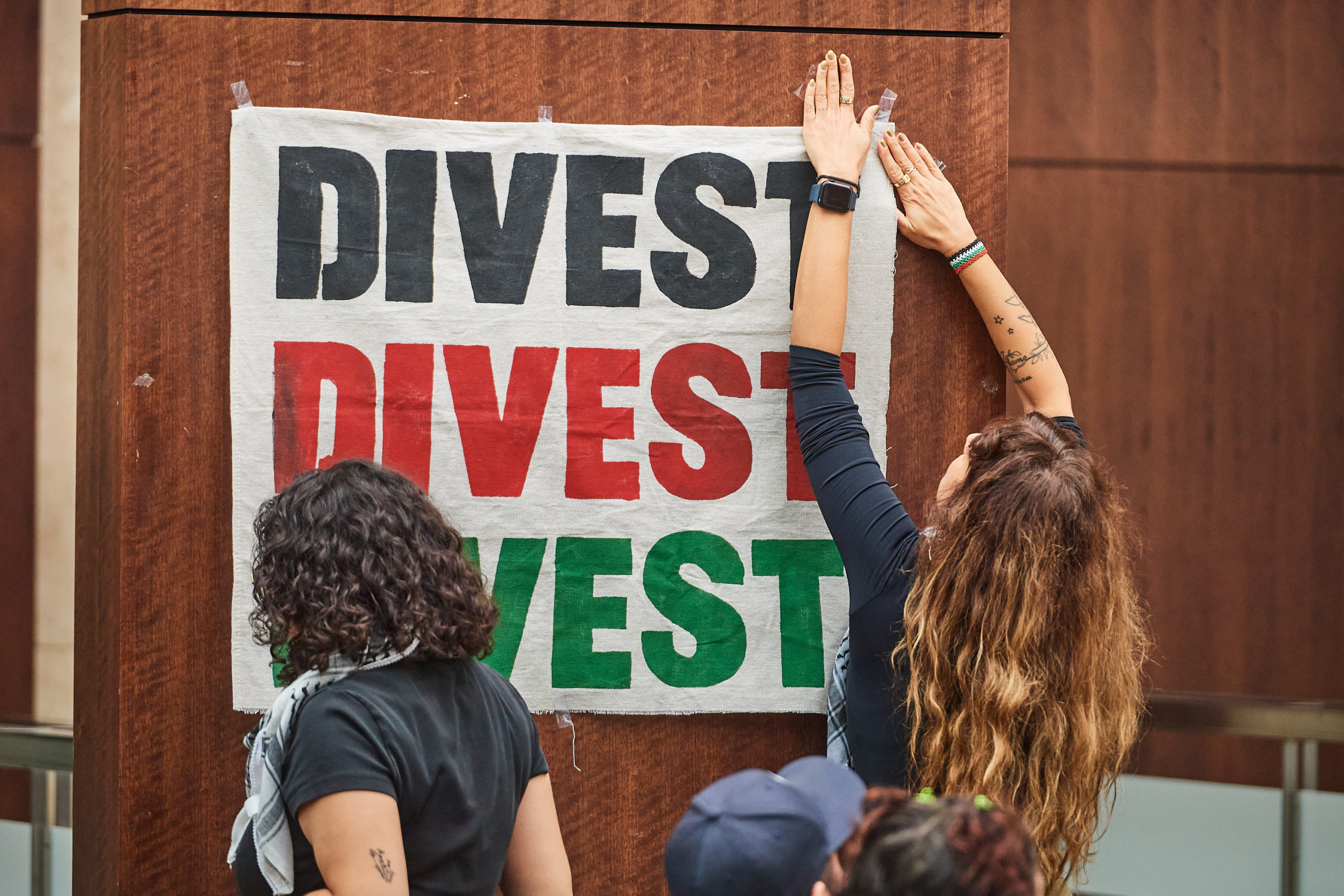
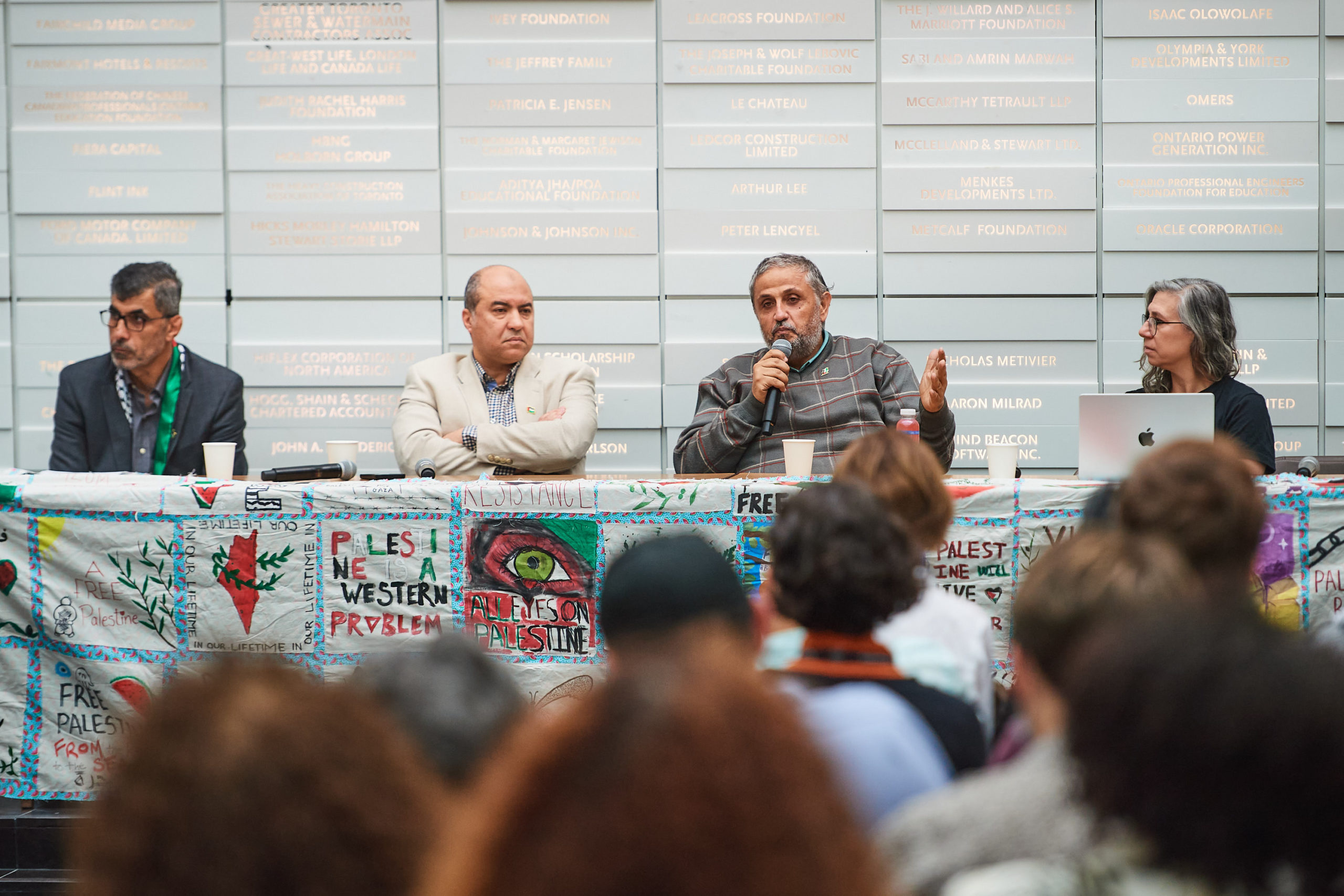
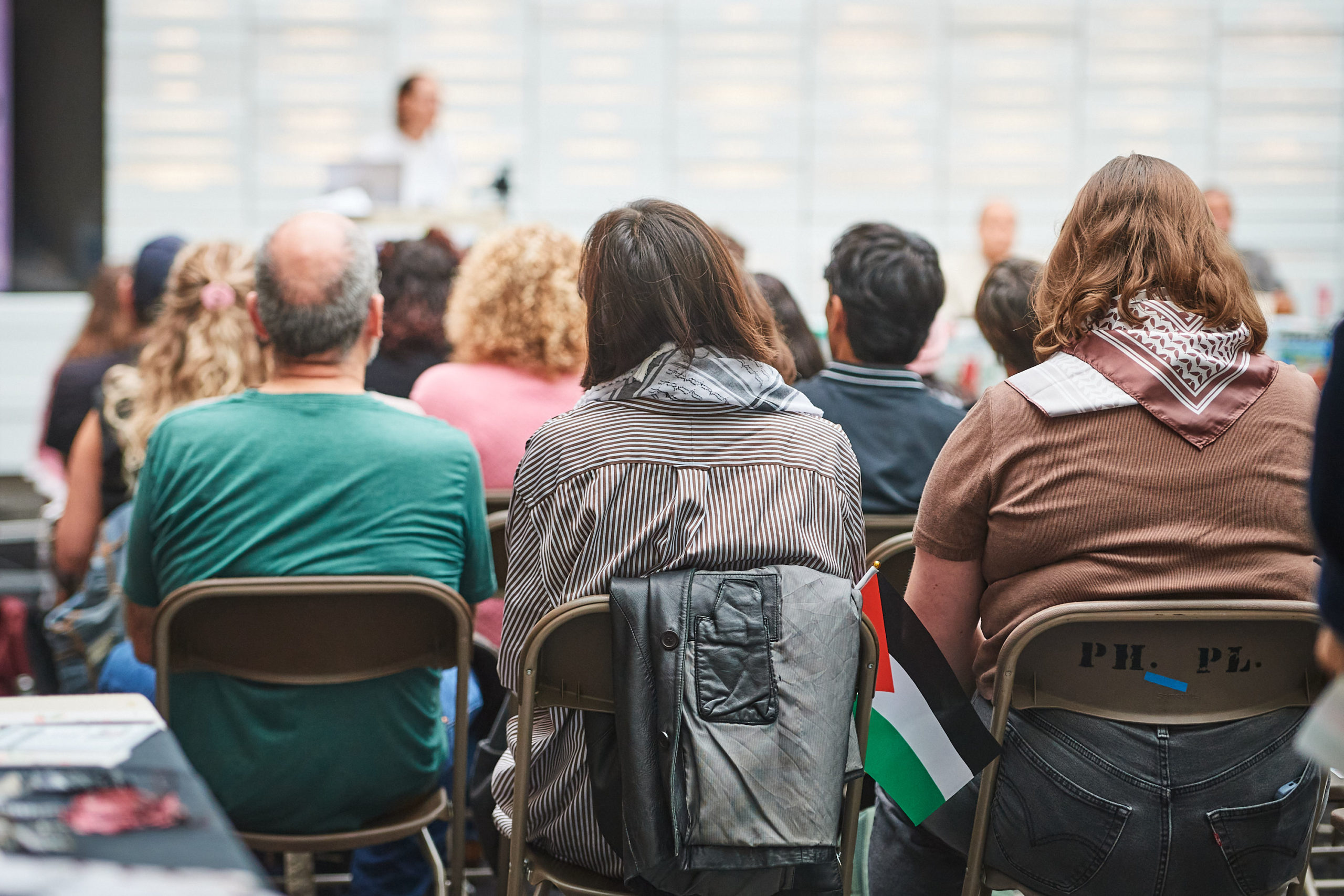
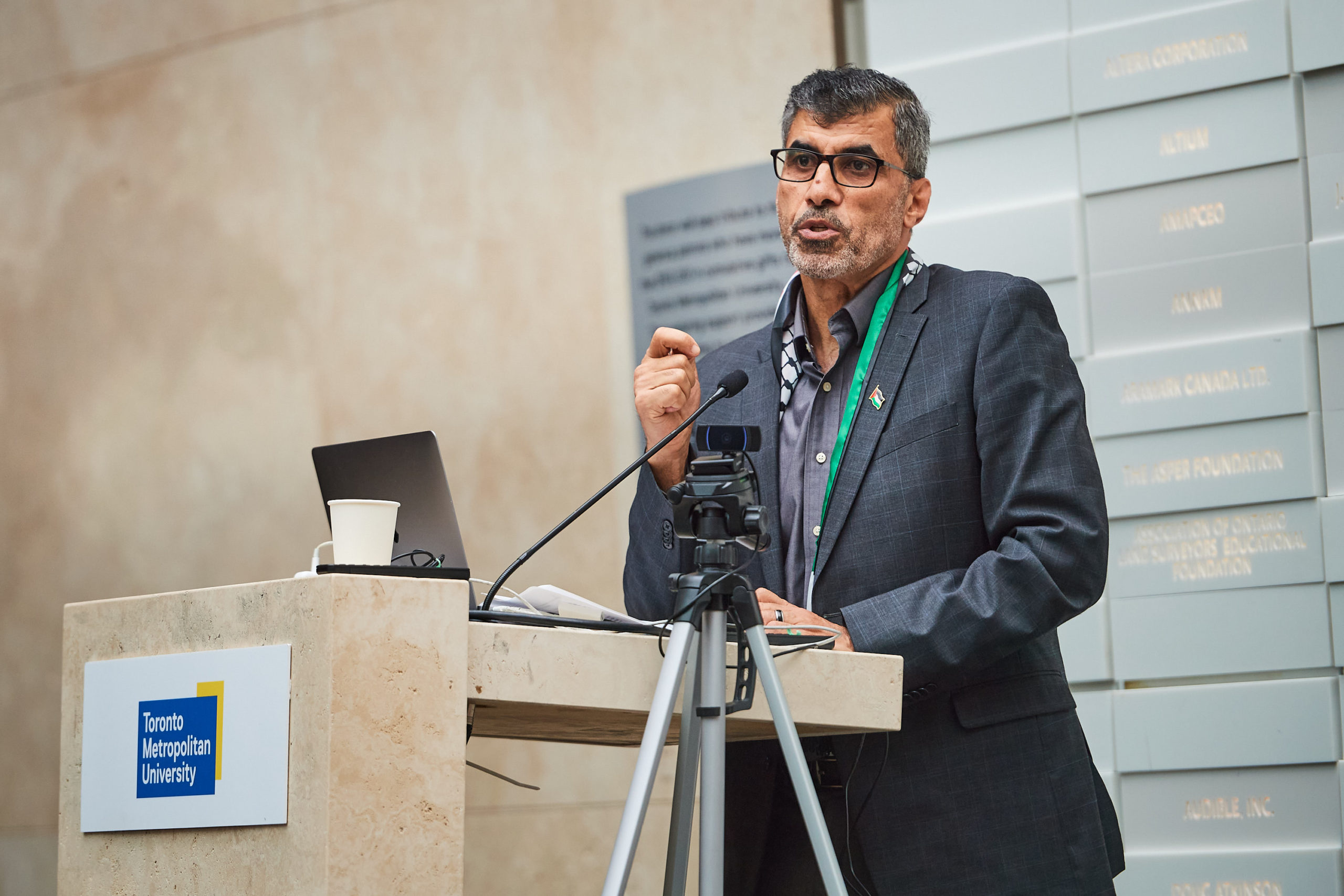
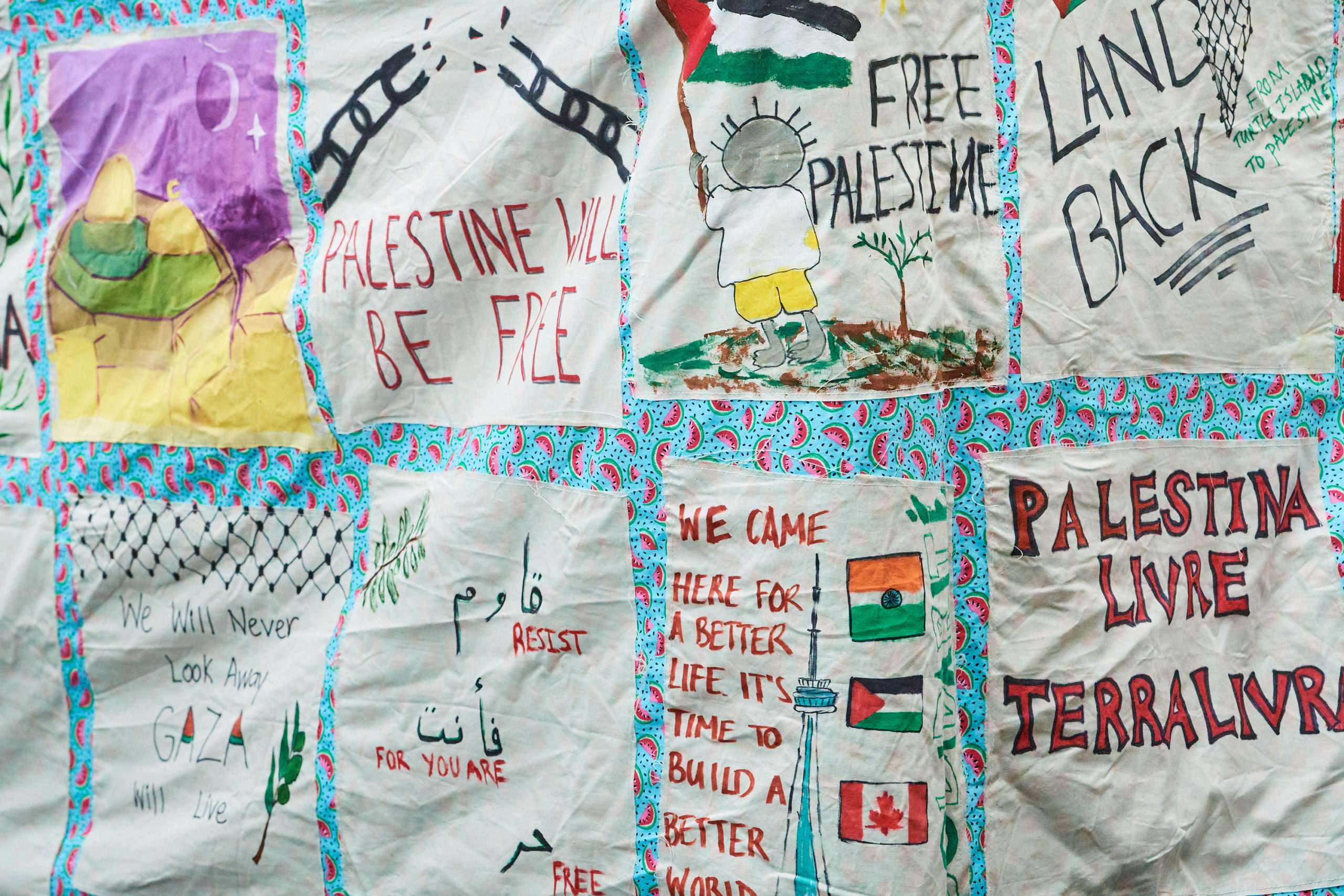
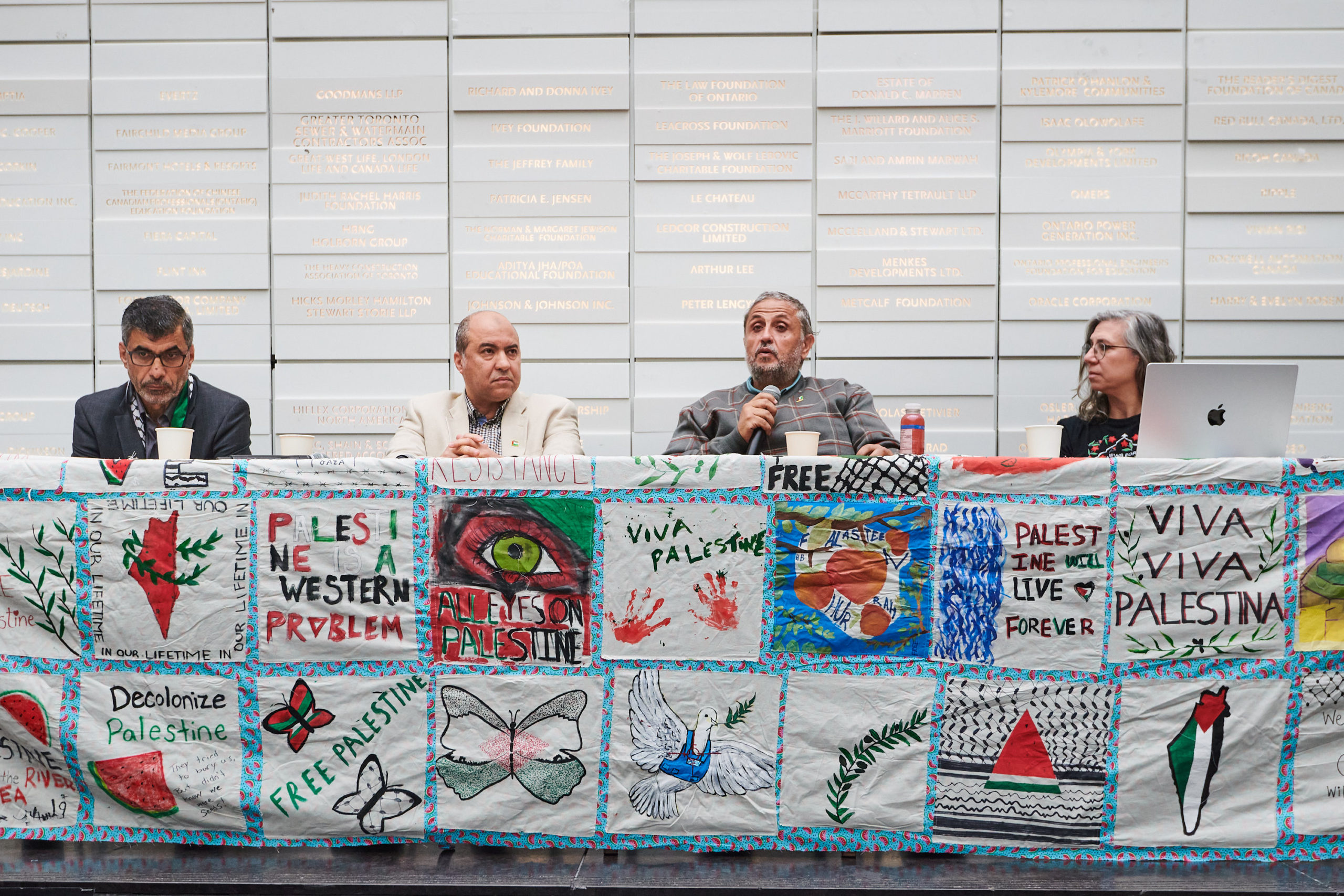
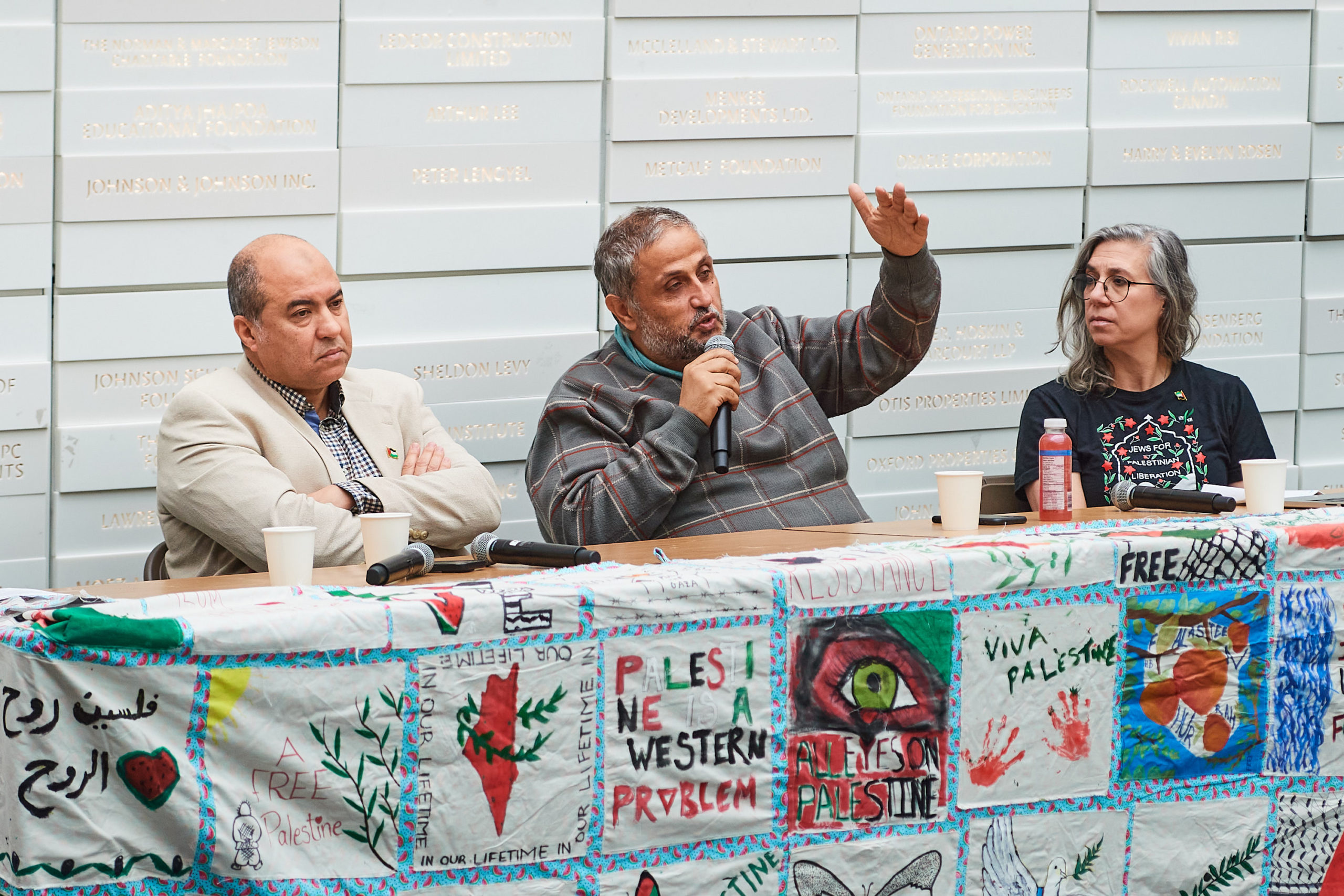
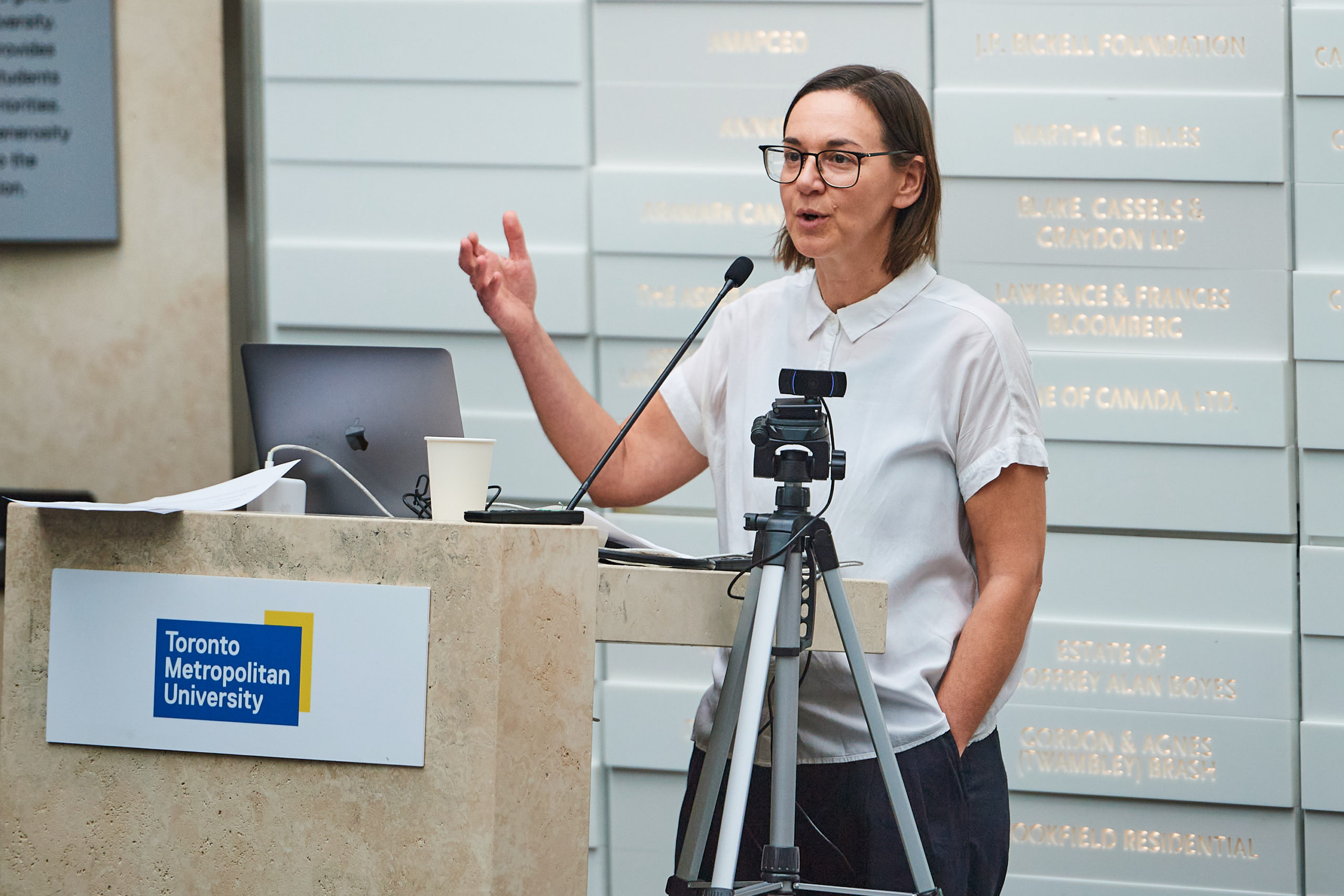



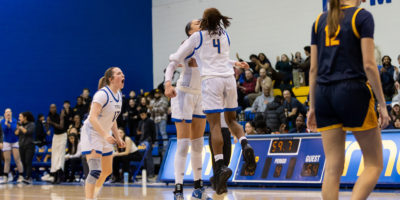
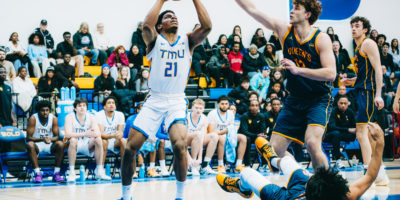
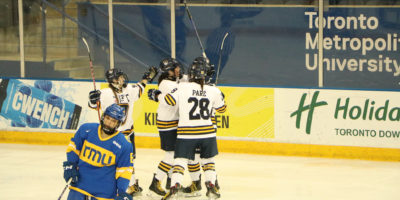



Leave a Reply